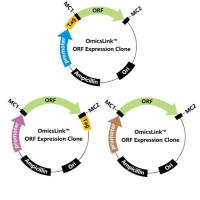Analysis of 14-3-3 Family Member Function in Xenopus Embryos by Microinjection of Antisense Morpholino Oligos
互联网
互联网
相关产品推荐

重组蛋白|Recombinant Mouse Ectonucleotide pyrophosphatase / phosphodiesterase family member 7 Protein (His Tag)
¥2310

Annealing Buffer for RNA Oligos,5X,阿拉丁
¥176.90

Recombinant-Mouse-Intercellular-adhesion-molecule-2Icam2Intercellular adhesion molecule 2; ICAM-2 Alternative name(s): Lymphocyte function-associated AG-1 counter-receptor CD_antigen= CD102
¥11046

NLRP5 Homo sapiens maternal-antigen-that-embryos-require protein (MATER) mRNA.
询价

Cell Cycle Analysis Kit (with RNase)(BA00205)-50T/100T
¥300
相关问答

